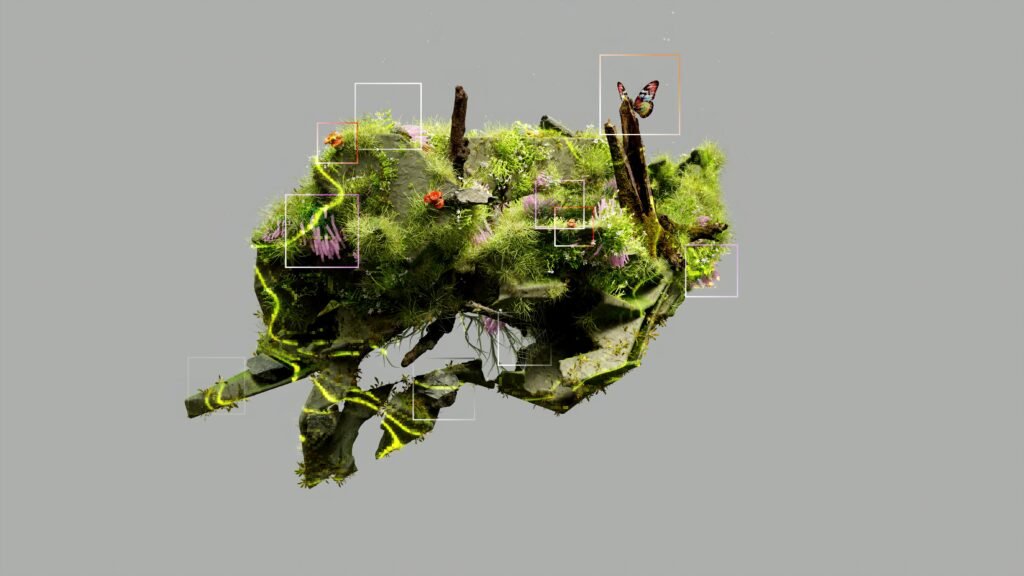The Latest Innovations and Trends in AI: What’s Shaping the Future

Introduction
Artificial Intelligence (AI) continues to evolve at an astonishing pace, transforming industries and redefining the way we live, work, and create. From generative AI to autonomous systems and ethical AI governance, the latest trends are setting the stage for a smarter, more efficient world.
If you want to stay ahead of the curve, understanding the latest innovations in AI is no longer optional — it’s essential. Let’s explore the key breakthroughs and trends driving the AI revolution in 2025 and beyond.

1. Generative AI: The Creative Powerhouse
Generative AI tools like ChatGPT, Midjourney, and Runway ML are revolutionizing creativity. These systems can write content, design visuals, and even produce video in minutes — tasks that once required hours or days.
Businesses now use generative AI for:
- Marketing content creation
- Product design prototyping
- Automated video production
As models become more advanced, generative AI will blur the line between human and machine creativity.
2. AI-Powered Automation in the Workplace
AI-driven automation is no longer just about replacing manual tasks — it’s about enhancing human productivity.
Tools integrated with AI can now manage workflows, summarize meetings, and optimize schedules automatically.
Companies leveraging AI automation enjoy:
- Reduced operational costs
- Faster decision-making
- Improved customer engagement
This trend is making workplaces more intelligent, efficient, and data-driven.
3. The Rise of Multimodal AI Systems
Unlike earlier AI models that focused on a single input (like text or images), multimodal AI can process and understand multiple data types simultaneously — including text, sound, and visuals.
These systems power:
- Advanced chatbots that “see” and “hear”
- Smart assistants that analyze videos
- Medical tools that interpret X-rays and reports together
This integration creates a more holistic and powerful understanding of the world.
4. Edge AI and On-Device Intelligence
Edge AI — where processing happens locally on devices instead of the cloud — is gaining traction. It enables faster responses, better privacy, and lower latency, especially for IoT devices, smartphones, and autonomous vehicles.
Expect to see AI chips becoming standard in next-generation gadgets, enabling smarter homes, vehicles, and healthcare wearables.
5. Responsible and Ethical AI
As AI becomes more influential, so does the need for responsible and ethical AI governance. Governments and tech companies are creating frameworks to ensure transparency, reduce bias, and protect user privacy.
Ethical AI development is not just a moral choice — it’s becoming a competitive advantage for companies that value user trust.
6. AI in Healthcare and Biotechnology
AI is revolutionizing medicine through early disease detection, personalized treatment, and faster drug discovery. Machine learning models can now analyze patient data to predict illnesses even before symptoms appear.
From robotic surgeries to AI-driven diagnostics, healthcare innovation is moving toward precision medicine, saving lives with data-driven decisions.
Conclusion
The latest innovations in AI are reshaping industries, empowering individuals, and transforming the global economy. Whether it’s creative content, automation, or ethical governance, AI continues to redefine what’s possible.
To stay relevant in this fast-evolving world, both individuals and businesses must adapt, learn, and embrace AI as a core part of their strategy.
FAQs
1. What are the most important trends in AI right now?
The top trends include generative AI, multimodal AI systems, edge AI, ethical AI development, and automation in the workplace.
2. How is AI changing creative industries?
AI tools can generate visual designs, music, scripts, and videos — allowing creators to produce more in less time while experimenting with innovative ideas.
3. What is edge AI and why does it matter?
Edge AI processes data locally on devices rather than in the cloud, improving speed, security, and privacy — crucial for IoT and real-time systems.
4. How is AI affecting healthcare?
AI assists in early diagnosis, patient monitoring, and drug development, helping doctors provide more accurate and personalized treatments.
5. What’s the future of AI?
AI’s future lies in human-AI collaboration, ethical governance, and deep integration across all sectors — from education to entertainment.



